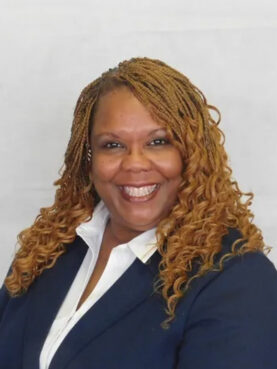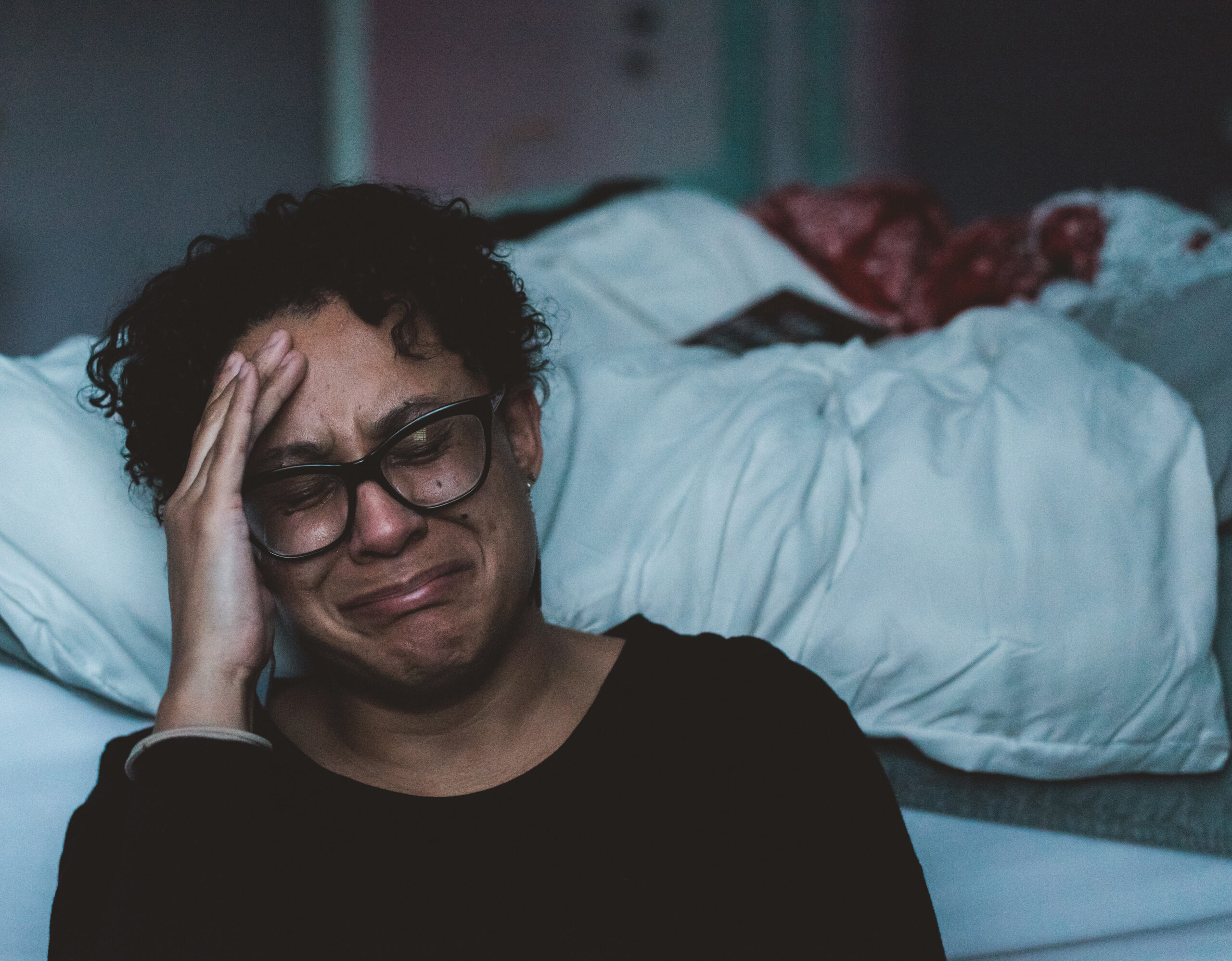(RNS) — For Kenya Procter, a pastor who trains other faith leaders to understand and prevent suicide, it was personal before it became her job. Twenty years ago, she and her husband, Fallon, lost a close friend named Jay whom they had known when the two men served together on a U.S. Army base. After Jay’s death, Procter couldn’t help but think about why he chose to end his life.
Procter also found that she could not talk about it comfortably. But in 2010, a volunteer position opened up at the American Foundation for Suicide Prevention while Fallon was serving at Fort Bragg, now Fort Liberty, North Carolina. Procter realized she could channel her own response to Jay’s death to help others who had lost someone to suicide.
“It gave me that ‘aha’ moment,” said Procter, who is now executive pastor of Center for Ambassadors of the Worship of Christ, a nondenominational church in Raeford, North Carolina, where Fallon is pastor. “I wanted others to know that there is no need to feel stigmatized because you have lost someone to suicide.”
Raised in the black church tradition in Louisiana, Procter learned that part of her discomfort in speaking about Jay’s death was related to her upbringing; as a clergy member, she knows that black pastors are among those who need to talk about suicide the most.
Today, Procter is part of a national movement that works with community organizations, health officials and mental health advocates to train Christian religious leaders on how to speak to their parishes about this crucial topic. She is also responsible for ensuring that clergy receive the help they need to deal with their own mental health needs.
Suicide disproportionately impacts Black communities in the United States: in 2020, suicide was the third leading cause of death among blacks in their teens and early twenties. In 2019, young black women in particular were 60% more likely to attempt suicide than their white peers.

(Photo by Siviwe Kapteyn/Unsplash/Creative Commons)
In many black communities, the church is often a hub for many services beyond spiritual upliftment. In rural communities especially, churchgoers and nonbelievers alike rely on churches for information on everything from voting to health care. It is also the first place where many people bring their celebrations and their problems, their financial difficulties and their personal sorrow. So if clergy aren’t talking about suicide, “then that means no one is talking about it,” Procter said.
Shortly after volunteering to help with suicide prevention at Fort Bragg, Procter joined a program called Applied Suicide Intervention Skills Training, known as HELP, and began teaching others to do the work. As she became chair of the program’s board of directors and became a pastor herself, she became more concerned about religious leaders’ views on suicide and their susceptibility to it.
“I’ve been screaming for years: ‘We have to do something for the clergy.’ And since I’m a clergy person, you’d think it would be easier, but it’s not. It’s so difficult to involve the clergy and say, ‘Let’s talk about suicide,’” she said.

Kenya Procter. (Courtesy photo)
Early in the COVID-19 pandemic, the U.S. Department of Health and Human Services sponsored a grant program to study ways to reduce disparities in health care delivery. North Carolina public health officials took advantage in part by partnering with LivingWorks. The resulting program was called Faith Leaders for Life and focused on suicide prevention. LivingWorks, ASIST’s parent company, was tasked with developing a training program for clergy. Its director of faith community engagement, Glen Bloomstrom, in turn named Procter as one of the faith leaders working with other clergy.
The silence in the black community about suicide goes beyond faith, Procter said. The history of oppression has made resilience and mental toughness – or at least being perceived as such – a necessity for survival. “We’re not talking about mental health, we’re not talking about suicide,” Procter said. “If we lose someone to suicide, we say, ‘The person is dead.’
The church reflects this taboo on mental illness by classifying suicide as a sin, which is “not helpful,” said Procter, who cites a verse from the book of Hosea: “My people are destroyed for lack of knowledge.”
As a result, clergy generally lack training in mental health and suicide prevention. They might also have trouble with suicidal thoughts, but don’t know where to turn.
The first step to ending this cycle, Procter said, is to prevent clergy from responding to mental health issues only when they become a crisis. “Pastors traditionally and historically put out fires. This is what we do. But if we can get to a point where we are proactive, then maybe it will be smoke and not fire.
This might mean knowing about crisis intervention training officers in the area, or simply having the number of a suicide hotline or even a resource sheet on prevention and intervention handy against suicide.
A more robust solution is to provide suicide prevention training through Faith LivingWorksa program that grew out of long-standing work with the U.S. Navy Chaplaincy, or Soul Shop for Black Churches, which teaches LivingWorks ASIST techniques in a one-day workshop for Black clergy.

Photo by Claudia Wolff/Unsplash/Creative Commons
“Churches are an important part of many Black communities, a reliable resource, a safe place to go,” said Garra Lloyd-Lester, community and coalition initiatives coordinator at the Office of Mental Health’s Suicide Prevention Center. New York City, which also provides free services to New York clergy access to LivingWorks Faith programming. “It makes sense that we have information tailored to these communities, so we can include how we talk about suicide.”
Soul Shop for Black Churches was inspired by Rev. Erwin Lee Trollinger, pastor of Calvary Baptist Church in White Plains, New York, after he became aware of how many clergy he knew were struggling with health issues mental. He established connections with leaders of the American Foundation for Suicide Prevention, who in turn brought Soul Shop, a group founded by Fe Anam Avis, a former Ohio pastor who lost three young people from his church to suicide in less than a year. He eventually created a one-day workshop on suicide prevention for religious leaders and turned it into a national program.
With Trollinger’s call to action, Soul Shop and AFSP leaders came to the same realization: they needed to adapt the ASIST program for the Black Church.
“I said, ‘If you’re going to have the faith community as a target, you have to make sure that faith leaders are also trainers,'” said Pat White, president of diversity, equity and inclusion of the AFSP section. covering New York’s Hudson Valley and Westchester County, home to Trollinger’s church. White insisted that all training would take place in churches, with the senior pastor and associate pastor participating.
It also imposed a “breach of contract” threshold: at least 50% of workshop participants had to belong to the congregation of the church where the workshop was held. “Then as a congregation, they will be the messengers of all the work, of all that they hear, of all the lessons, and then they will begin to speak just by speaking,” White said.
Working with these principles, Soul Shop for Black Churches has since expanded well beyond New York.
Procter is proud of the progress the mental health cause has made within the Black Church community and among its clergy. Lately, she’s found more hope in educating a younger generation about mental health, including in her own home: After years of hearing the importance of mental health preached at the dinner table, the 17-year-old’s son Procter, his eldest, recently volunteered for suicide prevention training.
This article was produced as part of the RNS/Interfaith America Religious Journalism Fellowship.
